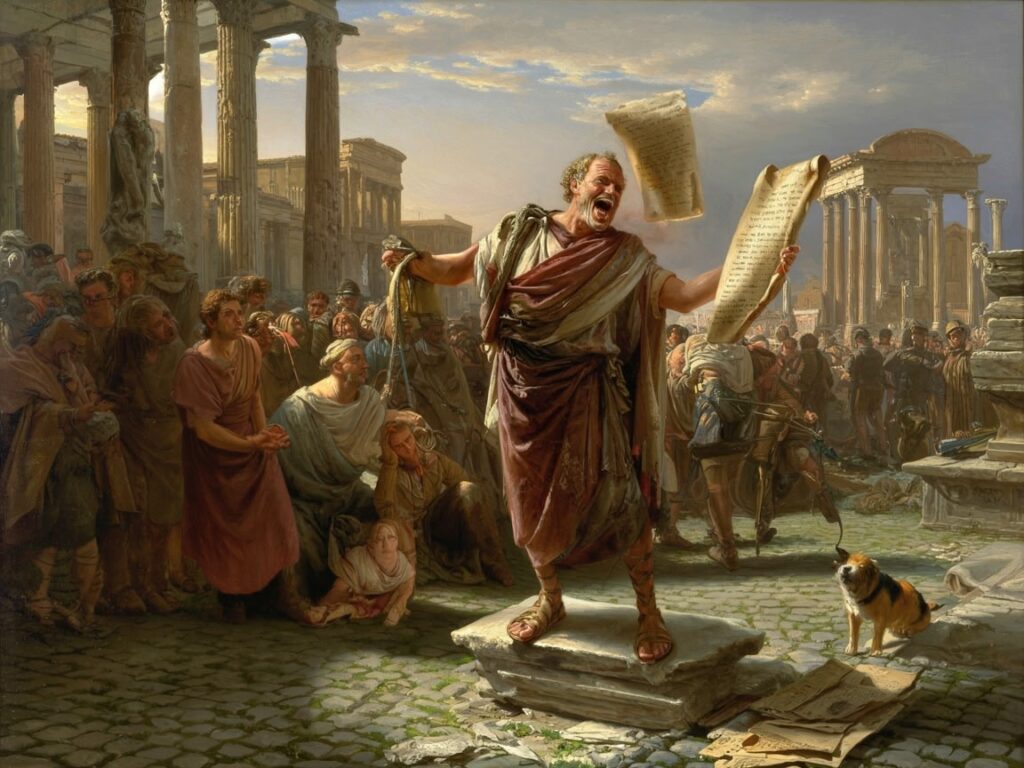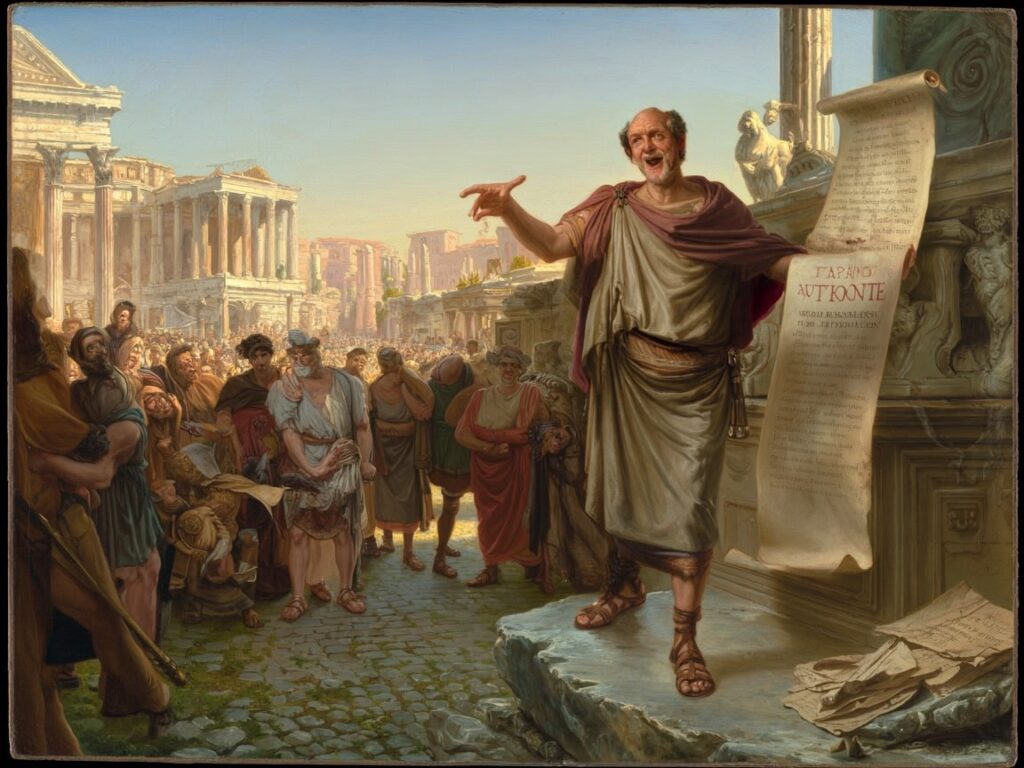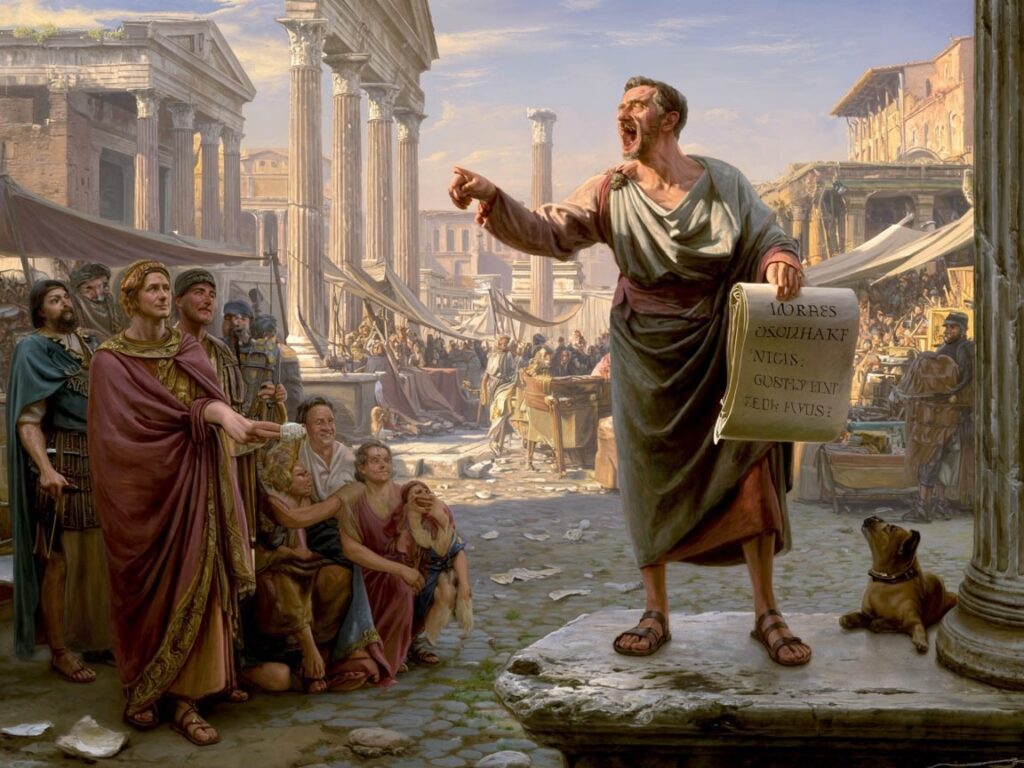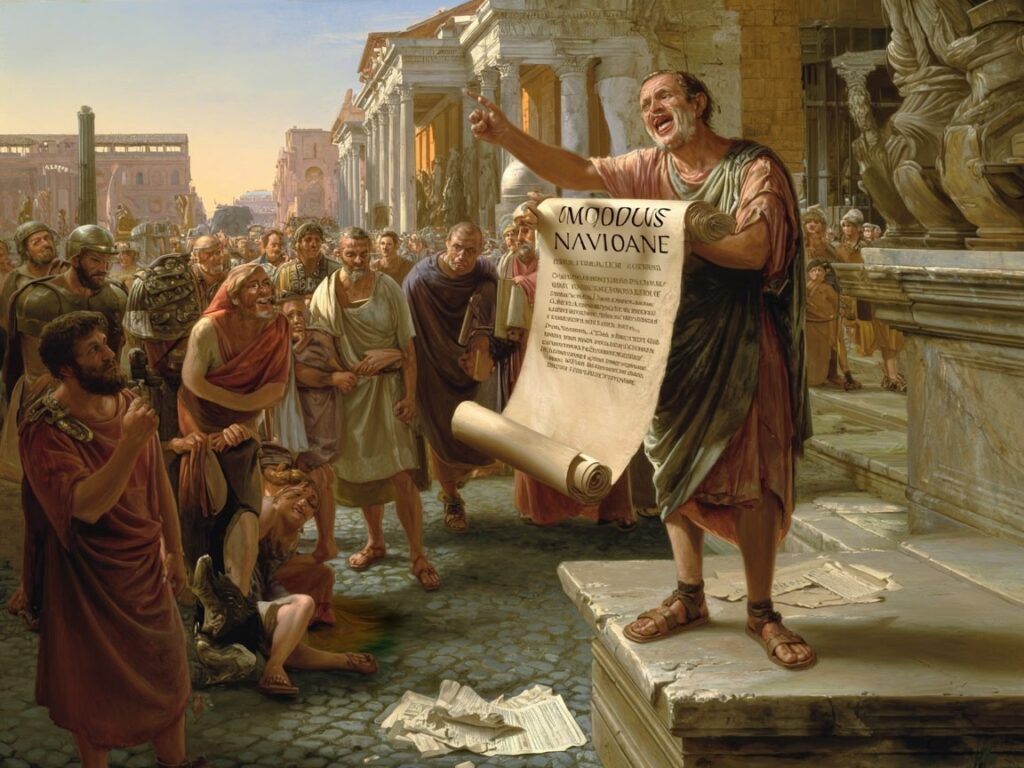In ancient Roman culture, Roman humor and satire were powerful tools for social commentary and critique. This unique form of expression used wit, irony, and sarcasm to highlight societal flaws and wrongdoings. Through laughter, Romans found a way to reflect on their values, challenge authority, and encourage critical thinking.
This article explores the origins, development, key characteristics, styles of prominent satirists, contributions of comedy playwrights, social functions, lasting impact on Western literature, and cultural legacy of Roman humor and satire. By examining history through laughter, we uncover deep truths about the past while shaping the future’s cultural landscape.
Origins and Development of Roman Satire
Roman satire emerged in the 2nd century BCE, a time when ancient Rome was undergoing significant social changes. It was influenced by Greek comedy and native Italian traditions, combining elements from these diverse cultural sources to create a distinct literary genre. This blending of influences allowed satire to evolve into a uniquely Roman form of expression, reflecting the values and concerns of Roman society.
Satire became a powerful tool for social commentary, using humor and wit to address societal issues and challenge prevailing norms and behaviors. The Twelve Tables, created between 451-450 BCE, were a significant milestone in the development of Roman law and legal history. These laws were the first attempt to codify the complex and often arbitrary legal practices of ancient Rome, providing fertile ground for satirical critique.
Over time, Roman satire found its own voice, becoming a mirror that reflected the contradictions and absurdities of daily life in ancient Rome. The structure of power during the Roman Republic (509 to 27 BCE) marked a significant transition in governance from monarchy to a complex political structure. This system laid the foundation for modern democracies and established key principles of governance that resonate today.
Moreover, the rise and fall of the Roman Empire, which lasted over a thousand years, has had a lasting impact on the world, shaping politics, culture, and society in ways that are still relevant today. This ancient civilization was not just a political entity; it was a rich tapestry woven from diverse cultures, languages, and traditions.
Additionally, the enduring influence of the Corpus Juris Civilis on modern law highlights the significance of ancient Roman legal principles in contemporary society. Commissioned by Emperor Justinian I in the 6th century AD, this comprehensive codification preserved ancient Roman legal principles while adapting them to meet contemporary needs.
Finally, Stoicism](https://www.menofpompeii.com/the-rise-of-stoicism-in-rome-how-greek-philosophy-shaped-roman-thought), a philosophical school founded by Zeno of Citium around 300 BCE in ancient Greece, gained prominence in Rome during this period. Its main teachings emphasized living in harmony with nature, using reason, and practicing virtue as paths to achieving eudaimonia or human flourishing. These ideas became popular in Roman culture, influencing the thoughts and actions of important thinkers throughout the empire.

Key Characteristics of Roman Humor and Satire
The use of wit, irony, and sarcasm are fundamental features of Roman humor and satire. These elements were intricately woven into the fabric of Roman culture, serving as powerful tools for social commentary and critique.
Wit: Roman humor often showcased cleverness and intelligence, challenging societal norms and conventions through subtle humor.
Irony: The Romans excelled in the art of irony, using it to highlight contradictions and absurdities in their society with a touch of humor.
Sarcasm: A prevalent tone in Roman satire, sarcasm was employed to mock and expose societal vices, often with a sharp edge.
Satire, as a literary form, went beyond mere entertainment; it served as a mirror reflecting the follies and shortcomings of ancient Rome. Through the lens of humor, satirists like Horace and Juvenal shed light on political corruption, social injustices, and moral decay, provoking thought and challenging the status quo.
The blend of wit, irony, and sarcasm in Roman humor not only entertained audiences but also sparked conversations about crucial issues, making it a potent instrument for social critique throughout ancient Roman society.
For a deeper understanding of the cultural context within which this humor thrived, you might want to explore more about the lives of plebeians who constituted the majority of Roman society. Additionally, gaining insights into Ancient Roman religion could provide a broader perspective on how these beliefs influenced various aspects of life including humor.
To truly appreciate the vastness of the subject matter related to Ancient Rome, I recommend visiting Men of Pompeii, an online resource dedicated to exploring the fascinating world of Ancient Rome from its origins as a Republic to its transformation into a mighty Empire. This platform offers engaging content that brings the past to life.
Prominent Roman Satirists and Their Styles
Roman satire owes much of its richness to two towering figures: Horace and Juvenal. Each brought a distinctive voice and style, shaping how satire functioned within Roman culture.
Horace: The Gentle Satirist
Horace adopted a gentle and playful tone in his satires. His approach was often lighthearted, using humor not just for mockery but as a way to offer moral lessons. Horace’s wit is subtle, inviting readers to reflect on human nature and social behavior without harsh condemnation. His satire feels more like friendly advice wrapped in amusement.
Juvenal: The Fierce Critic
In contrast, Juvenal wielded satire like a sharp weapon. His tone was biting and sarcastic, delivering scathing critiques of Roman society. Juvenal’s work exposes corruption, hypocrisy, and moral decay with unflinching severity. His sarcasm cuts deep into the political and social pretensions of his time, making readers uncomfortable but attentive to the truths beneath the humor.
Overlapping Themes with Diverging Intensities
Their thematic focuses overlap yet diverge in intensity:
- Both address political corruption, but Juvenal’s criticism is more direct and unforgiving.
- Social pretensions receive Horace’s mild ridicule versus Juvenal’s vehement denunciation.
- Moral decay appears in both, though Juvenal portrays it as an urgent crisis threatening Rome’s very fabric.
The contrast between Horace’s playful wisdom and Juvenal’s fierce indictment highlights the versatility of Roman humor and satire as tools for engaging with society—whether through gentle correction or harsh exposure.

The Historical Context of Roman Satire
This engagement with societal issues can be traced back to the foundational changes during the transition from monarchy to a republican system in Rome, a pivotal moment known as the birth of the Roman Republic. Understanding this transition is essential for grasping the complexities of Roman governance and its enduring impact on modern political structures.
Role of Roman Comedy Playwrights in Shaping Humor Tradition
The rich tradition of Roman humor owes much to the contribution of playwrights like Plautus. His works, along with those of his contemporaries, significantly shaped the landscape of Roman comedy. These comedic plays were not merely a source of entertainment; they served as a medium to highlight absurdities in everyday life, making audiences laugh while also reflecting societal norms and issues.
In many ways, the role of these playwrights can be likened to that of modern role-playing game participants who immerse themselves in different characters and scenarios. For instance, JP Farmer, an academic who enjoys role-playing games, particularly in Second Life’s Romanum world, brings to life the essence of Roman culture and humor through his immersive experiences.
Moreover, understanding the societal context in which these comedies were written adds another layer to their appreciation. The patricians, who were the wealthy and powerful elite of ancient Rome, often featured prominently in these plays. Their lifestyle and attitudes were frequently satirized, providing a humorous yet critical commentary on their role as masters of Roman luxury and power.

Social Functions of Humor and Satire in Ancient Rome
In ancient Rome, humor and satire served as more than just entertainment; they were powerful tools that reflected and shaped societal norms and power structures. Satire, in particular, played a crucial role in challenging authority figures and exposing societal issues through the subversive use of humor. By satirizing political corruption, social hierarchies, and moral failings, Roman satirists engaged audiences in critical discussions disguised as laughter.
However, it’s important to note that the landscape of ancient Roman society was not uniform. Daily life varied significantly across different social classes. For instance, the daily life in Ancient Rome was vastly different for the various social classes, especially the patricians and plebeians. This class divide influenced the type of humor that was acceptable or popular among different groups.
Moreover, humor in Roman society was not merely a form of escapism but a means of holding a mirror to the community’s values and behaviors. It provided a safe space for individuals to question established norms and think critically about the world around them. Through humor, Romans could navigate complex social dynamics and express dissent in a way that was both entertaining and thought-provoking.
The spectacles of ancient Rome – from gladiatorial contests to chariot races – also played a significant role in shaping social relationships and political authority. These events were not just forms of entertainment but also served as platforms where societal norms were questioned and challenged. The spectacle of ancient Rome illustrates how humor and satire could intertwine with these grand events to create a unique commentary on society.
This dual function of humor as both a source of joy and a catalyst for change underscores its enduring importance in ancient Roman culture. Furthermore, while agriculture was a crucial driver of Rome’s economic growth during this period from fields to fortune, the military might represented by the Roman Army also played an instrumental role in shaping the empire’s socio-political landscape.
Enduring Influence on Western Literature and Cultural Legacy
Roman humor and satire have had a significant impact on Western literature, shaping cultural expression for centuries. The influence of Roman satire can be seen in the development of Western literary traditions, where humor is used as a powerful tool for social critique. This lasting legacy highlights the timeless relevance of Roman humor in today’s society.
There are many examples of how Roman humor continues to influence modern forms of social commentary. From satirical cartoons to political satire in literature and media, we can see traces of Roman wit and irony in our cultural landscape. The ability of Roman humor to combine entertainment with critique has solidified its position as an essential part of Western literary heritage.
Through its enduring influence on Western literature, Roman humor and satire demonstrate the power of laughter in provoking thought, challenging norms, and promoting cultural understanding across generations.

Conclusion
Roman Humor and Satire: Laughing Through History is more than just a source of entertainment; it is a clever combination of amusement and sharp social criticism. This combination reveals deeper truths about Roman values, providing historical insight into the complexities of ancient society. Satire was never meant to be purely funny; it reflected Rome’s political corruption, social pretensions, and moral dilemmas.
Laughter served as a powerful tool to:
- Provoke thoughtful reflection on societal norms
- Challenge established conventions and authority
- Foster cultural understanding across different eras
The enduring relevance of Roman humor lies in its ability to engage audiences while encouraging critical thought. By studying this tradition, you gain more than amusement—you access a unique lens that connects past and present through wit, irony, and the timeless human capacity to laugh at ourselves.

